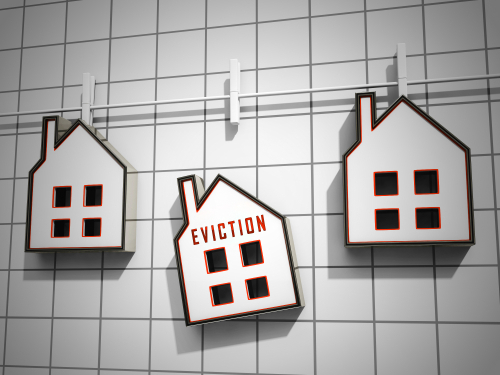With the current state of the Covid-19 pandemic in New York, many people with landlords or mortgages face reduced hours, unemployment, and financial uncertainty. To mitigate the fear of losing your home as a tenant from of abiding by the current shelter at home guidelines, New York has issued orders changing the usual laws related to foreclosures, evictions, and tenant rights.
Current New York Coronavirus Executive Orders
- Until at least June 19, 2020, evictions are suspended. Courts also will not accept any new eviction or foreclosure cases.
- No Sheriffs, Marshals, or Constables are permitted to perform evictions due to the New York Governor’s Executive Order – even if a warrant for eviction exists.
- No landlord is permitted to engage or participate in rent gouging by increasing your rent to capitalize on the current crisis. If you are currently in a lease, your landlord can’t increase your rent until the lease expires. If you are either in a rent-controlled or rent-stabilized property, your landlord is limited in how much they can increase your rent. Currently, the rate is a 1.5 percent increase on a 1 year renewal and 2.5 percent increase on a 2 year renewal.
- Month-to-month tenants or tenants at market rate whose lease is expiring must be provided with advance notice in writing if your rent will increase more than 5 percent. You must receive 90 days notice if you have lived in your apartment for 2 years or more or have a 2 year lease. You must have 60 days notice if you have lived in your apartment for more than 1, but less than 2 years. You must have 30 days notice if you have rented or leased for less than 1 year.
- Your landlord may not charge you increased rent – even with proper advance notice – unless you take an affirmative step such as paying the increase or signing a new lease. If you do not pay, your landlord must go to court to evict you, but currently there is a moratorium on their ability to do so.
- Landlords may not withhold essential services such as heat or hot water due to a failure to pay rent.
- Landlords may not take any action with the intention of forcing you to leave your home or sacrifice your legal rights, such as interfering with your privacy or your quiet enjoyment of your home. They also may not threaten to change locks or engage in disruptive construction in the building intended to interfere with your health, safety, or use of your home.
- Landlords may not engage in discrimination against or evictions proceedings with a tenant because they or someone they live with contracted or has had COVID-19 or because the landlord believes they have had the virus. This includes posting notices identifying a specific individual.
New York Real Estate AttorneyEven though there are government resources available to help with landlords who do not abide by the current executive orders, in some situations extra help is needed. If the relationship is not going as planned, the experienced New York real estate attorneys at MOWK Law can help you deal with any issues, protect your home and your rights, and look out for your best interests. Contact us today with your questions.

